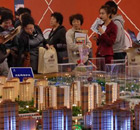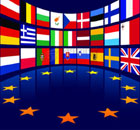Highlights
Gold standard for China
(China Daily)
Updated: 2010-03-01 09:43
 |
Large Medium Small |
Experts predict Li and Zheng's performances this year will spark another rush in Chinese kids picking up tennis rackets - Zheng and partner Yan Zi claimed the country's first Grand Slam title when they won the women's doubles in Australia in 2006.
The success of figure skating duo Shen Xue and Zhao Hongbo, who broke Russia's 46-year stranglehold on the Winter Olympics pairs event by winning gold in Vancouver on Feb 15, is also expected to see more people take to the ice. "The Games have been a dream come true," said their coach Yao Bin. "I hope more young people will love the sport, which is demanding but very attractive."
But while Chinese sports teams were once a symbol of national pride in the 1960s and 1970s, when they paved the way for bilateral communications with the West, the industry is now more about marketing and fighting for a share of the global market.
|
 Chinese tennis ace Li Na returns the ball to Tatjana Malek of Germany during their match at the WTA Malaysian Open in Kuala Lumpur last Tuesday. Li and compatriot Zheng Jie reached the semifinals of the Australian Open in January. [Agencies]
|
After collecting more than 170 Olympic medals, the nation has already proved its sporting prowess, so sportsmen and women can concentrate more on commercial success, said Yi Jiandong.
One example of this shift is "Hammer" Lang Ping. She helped the Chinese women's volleyball team to win five straight world titles in the 1980s, making her a national hero. But in 2008, she led the US women's team to silver at the Beijing Games and received huge support from the home crowd - even after her squad beat China in the group stages.
She now earns an estimated 5 million yuan a year coaching Evergrand, the first fully professional women's volleyball team in China.
Zheng and Li were also among four of China's top women's tennis players who were allowed by the country's authorities to take complete charge of their careers, making them responsible for hiring their own coaches and medical staff. Sports experts say the move is a major factor in the pair's recent good form.
Xiao Tian, the vice director of the State General Administration of Sport, said China is looking at long-term plans to build on its Olympic successes.
"It's hard for us to surpass what we've achieved at the Beijing Games but the Olympics only last for 16 days, professional leagues run throughout the year," he said. "We need to adjust our sights and start making our mark in more professional sports."
the only way to make it a valuable commodity the nation can export.
"Exports of sports-related products fall mainly into two parts: sporting goods and sporting services, the latter including performing in continental and international competitions, the brokerage industry and broadcasting," explained Yang Zaihui, a professor on sports economics at the Central University of Finance and Economics in Beijing.
Local sportswear brands like
Li-Ning and Anta are growing, with export volume hitting a peak of about 8 billion yuan ($1.17 billion) in 2008 and dropping only slightly during last year, she said. "China is doing almost nothing in the sports service sector and we still have a long way to go. As a commodity, our basketball and soccer leagues are low quality, so the majority of people in China turn to the NBA for basketball and the European leagues for soccer," she said.
The recent match-fixing and illegal betting scandal that has rocked the nation's soccer league - the China Football Association said this week it has "solid evidence" to expel one team from the competition, while two others were demoted to lower divisions as punishment - has not only shaken fans' belief in the domestic game but also harmed the international brand of Chinese sport, said analysts.
"The soccer scandal adds insult to injury. The government has not been giving it proper supervision and I'm afraid foreigners will take it as an example of a bad 'made-in-China' product. The professional game here as a whole has lost credibility," said Yang.
China's largest sporting brand, in reputation and height, is arguably one man: Yao Ming. The Houston Rockets all-star center, who has become one of the NBA's most popular players since his arrival in 2002, topped the Forbes Rich List of Chinese celebrities for the fifth year in a row in 2009 with earnings of almost 360 million yuan.
Although struggling with a foot injury since early last year, his stock has only risen higher in the eyes of the Chinese people since he reinvested some of his vast personal wealth into buying his former club, Shanghai Sharks, last November. But it is perhaps the less high-profile deal done between QSL Sports Limited and the Chinese Basketball Association (CBA) that is expected to have more impact on the domestic game.
The historic dollar agreement sealed last week, which will see QSL manage the National Basketball League, which is independent of the elite CBA, is the first time a private enterprise has been allowed to completely take over a professional league in China. Previously, sports associations under the State General Administration of Sport governed all leagues.
"The National Basketball League will be dedicated to finding homegrown stars through college recruitment projects, while it will also have stricter policies on the use of foreign players," said Kenneth Huang, co-founder of QSL, who in November also bought Jilin Northeast Tigers, a team in the CBA.







